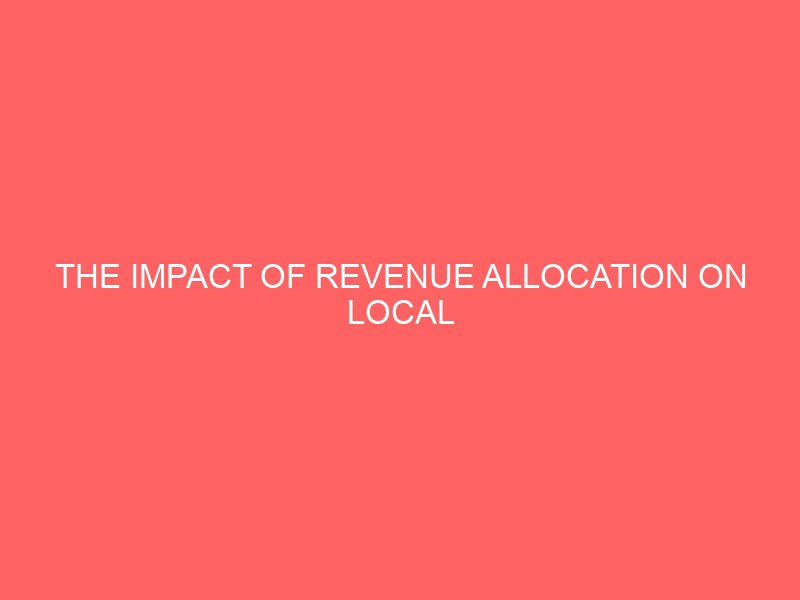Description
Abstract
This research assessed the impact of revenue allocation on local government performance using Ofu local government area as a case study. The local government allocation comes through the state government account which means the local government is not financially independent. This sometimes leads to the misappropriation of the funds at the federal and state level. The present revenue allocation formula has practically not favored the local governments. The objective of this research is to examine how the politics involved in revenue allocation has affected local government as the third tiers of government. The method used in collecting data was mainly primary and secondary data and questions which were administered to a population size which comprised of staff of Ofu local government which is about one thousand six hundred and thirty eight (1638). These were analyzed by simple percentage method. It was discovered from the findings that the major problem the local government has is misappropriation. Having critically examined this topic, some recommendations if strictly adhered to, the much needed development will be recorded at the local government levels. The following are some of the recommendations made: Greater emphasis should be laid at the grassroots where the bulk of the people lives and where development appears little or non-existence. In terms of principle for allocation or revenue among states and local government, the numerical strength and the poverty index of local government is very high not less than 35% should be given to them.








Reviews
There are no reviews yet.